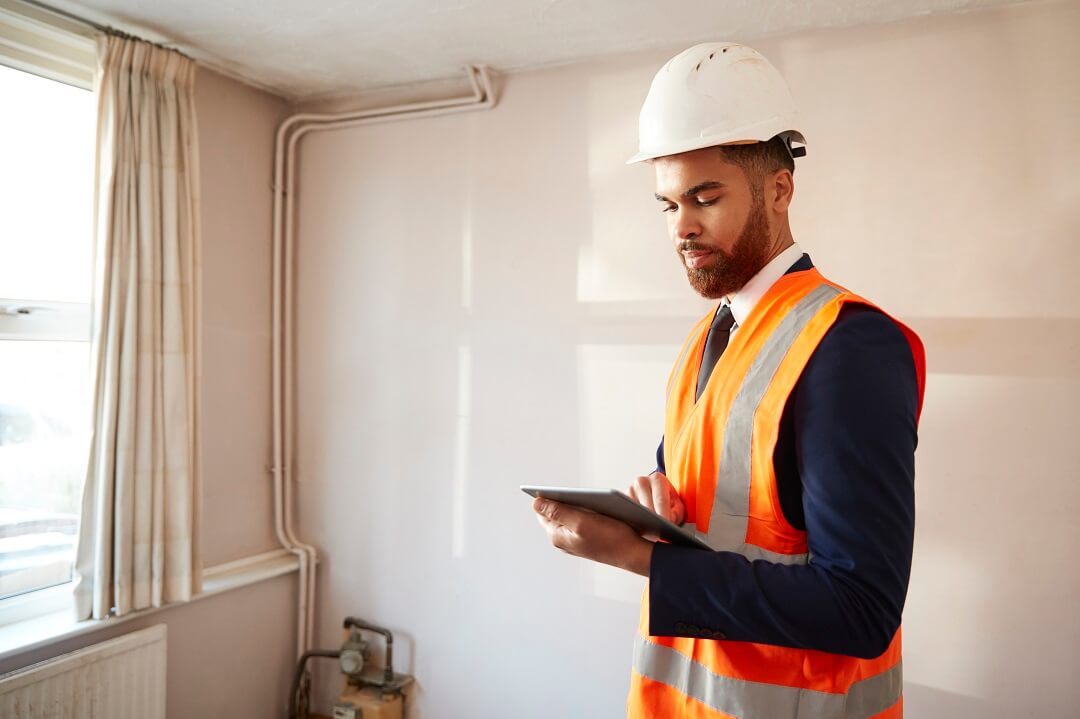A home inspection is an essential part of buying a home. The home inspection aims to protect potential borrowers from potentially hidden issues that could cost thousands. While some buyers are looking for a fixer-upper and are willing to take on anything the inspection reveals, other buyers don’t want the headache of having to repair their new home. The good news is that, as a buyer, a poor home inspection allows you to negotiate prices and/or repairs or walk away from the purchase. Things like foundational issues or the presence of mold in the walls are just some of the problems buyers will walk away from.
Key takeaways
- A standard home inspection looks at the home’s primary systems, such as the foundation, roof, appliances, electricity, and plumbing. For pest inspections, you may need to hire a pest professional to ensure you won’t be sharing your new home with an established infestation.
- If your inspection reveals concerns, you have two options. You can walk away from the home purchase completely or negotiate with the seller to reduce the price or make the necessary repairs.
Can you walk away from home after an inspection?
When a home inspection comes back, a seller has three options. If the report is clear of any problems, buyers can continue with the sale and have some peace of mind. If there are concerns, a buyer can walk away from the purchase. If they are comfortable with the concerns revealed in the report, they can negotiate with the seller for a reduction in the sale price or have the seller make the necessary repairs before the sale goes through.
What is a home inspection?
For a home inspection, a professional home inspector comes in to examine the condition of the property and identify any potential concerns that the buyer may want to consider. A home inspector will focus on the primary structure of the property, such as the foundation, roof, plumbing, and electrical system. They are also looking for signs of water damage, mold, environmental hazards, and signs of a pest infestation, though they may only note the potential of a pest infestation and recommend a pest control expert conduct an inspection as well.
What does a home inspection entail?
The home inspection reviews all aspects of the home and property and reports any potential concerns. They will note the condition of the foundations, roof, plumbing, windows, doors, and much more. While it is common for a home to have some problems, they are often minor and can be easy to fix. If you are looking at an older home, chances are you may find more concerns in your home inspection report.
Now, if there are serious problems that pose a safety threat to the inspector, they can immediately end the inspection and report back their findings without a complete report.
What to do after the inspection report
When the home inspection report returns, the buyer has three main options:
- Continue with the purchase: If the report shows no major concerns, the buyers can continue with the home purchase feeling confident that they have chosen a safe and well-built home.
- Negotiate with the seller: If the inspection shows some basic concerns, a buyer can work with the seller to negotiate a lower price, the cash to make the repairs, or the repairs to be completed before closing.
- Walk away: If the home inspection reveals major concerns or widespread problems, a buyer can simply choose to walk away from the purchase and look for another home that meets their needs.

When to walk away after a home inspection
There is no hard and fast rule when it comes to walking away after a home inspection. These days, many people are looking to pick up fixer-upper homes and are willing to take on the potential problems found in the home inspection. On the other hand, other buyers are looking to purchase their dream home that is in perfect condition, so even the slightest issue may be enough to say no.
Here are some of the common problems that come up in a home inspection and are the main reasons buyers walk away.
1. Foundation issues
The foundation is the base that supports the entire home. While it is normal for a foundation to settle or shift over the years, major changes, such as cracks, severe damage, or water getting in, can be major red flags for a buyer.
2. Mechanical issues
A home inspector will thoroughly examine all mechanical components of the property. This can include heating, HVAC, and major appliances. They will ensure all units are working properly and note any potential concerns. While appliances may not be a huge cost to repair, problems with an HVAC system can cost a buyer thousands of dollars.
3. Termites
Termites are small little bugs that can cost homeowners thousands of dollars in repair. These insects move into the home, destroying any wood. This could mean anything from support beams to walls, floors, and trim. While a home inspector may be able to see signs of a termite infestation, it may be beneficial to consider paying for a pest control company to inspect as well, especially if the home is in an area where termites are common.
4. Pest infestations
In addition to termites, many other pests, such as cockroaches and rodents, can put the home and your health at risk. Rodents are notorious for chewing and can cause widespread electrical problems. In addition, all these pests spread germs and bacteria to all surfaces they come in contact with, and those germs can spread serious health risks.
5. Water damage and molds
Water damage is a common concern found in home inspections. While not every sign of water damage reveals a larger problem, such as breaks in pipes or a hole in the roof, it does need further investigation. If water damage has been an ongoing problem, mold may be a concern. Mold may be visible or hidden within the walls. Significant or dangerous types of mold, such as black mold, can be difficult to get rid of and poses a hazard to humans and pets.
6. Plumbing system
A home inspector will take an in-depth look at the plumbing within the property, looking for illegal piping, rusted pipes, broken pipes, clogged pipes, and slow leaks. Any of these conditions can cause significant damage and can be costly to repair.
7. Well inspection
If the property runs off well water, then the inspector will conduct a thorough examination of the well that looks for mechanical defects. They will also test the quality of the well water, the refill speed, and the water pressure to ensure that the well is functioning properly.
8. Septic inspection
If the home uses a septic system, the inspector will ask for records of inspections that are recommended every three to five years, as well as do a complete visual inspection of the system, including the septic tank, distribution box, and the leach field.
9. Unpermitted work
Upgrades or additions are ways homeowners can make changes to their homes that work for them. However, even if they make these changes themselves, a permit is still necessary to ensure that any changes are done properly and up to code. If the home inspector discovers changes that are not part of the existing county records, it may mean significant expenses for the buyer.
10. Sewer problems
Problems with sewer lines can prove costly to homeowners. They are more common in older homes or homes where large trees and root systems may infiltrate the sewer line, resulting in blockage. While they can be fixed, they can be expensive.
11. Title issues
While you may get back a clear report from a structural report, the title company can come back with issues on the title of the home, such as overdue HOA fees or other liens in place on the home. If the seller is unwilling to address these issues, then the sale is blocked until they are.
12. Environmental hazards
While we have mentioned mold as a potential problem, other environmental hazards, such as carbon monoxide and radon levels, as well as lead paint, can create health hazards within a home. If an inspector identifies any of these concerns, a buyer will want to evaluate the risks and determine if it is worth going forward with the purchase.
13. Electrical issues
A quality electrical system is essential in any home. But problems with the electrical system can be costly and, in some cases, very dangerous for the buyer and their family. A home inspector will look for signs of a faulty or outdated system, as well as previous signs of an electrical fire. They will inspect wiring where they can, looking for potential damage, such as chewing from rodents. If electrical problems are detected, it can be a very expensive fix.
14. Roof issues
A roof that is near the end of its life and the inspector deems it needing replacement within two years is often something that lenders will consider because a damaged roof can lead to major problems down the line. If the roof is near the end of its life or the inspector finds additional roofing concerns, it may be time to walk away.
15. Exterior issues/windows and doors
Along with the roof and the foundation, an inspector will look at the rest of the exterior, including siding, windows, and doors, ensuring that they can provide protection against the elements and keep the interior of the home dry. While poor seals on the windows may seem like an easy fix, and they can be, it can also mean that water damage has occurred over and over again in the home, and there may be major damage on the inside that can’t be seen.

Frequently asked questions
When it comes to home inspections and purchasing a home, buyers have many questions. Here we answer some of the most common questions.
How do you walk away from a house after an inspection?
Once the offer is accepted on a property, the buyer typically puts down earnest money to go toward the down payment when closing. Before doing this, a buyer needs to ensure that they have an inspection contingency present in the contract. Should the inspection reveal any concerns, the buyer can now walk away from the sale without the risk of losing that money.
How do you negotiate after a home inspection?
If the home in question is listed as an “as-is” property, then there is often not much chance of negotiation. However, if you have accepted the findings in the inspection report, you can leverage these concerns to negotiate repairs or a reduction in the sale price. When negotiating, consider bringing in contractor quotes to show the potential cost of repairs.
How often do buyers back out after inspection?
A 2022 report from the National Association of Realtors reports that 25 percent of buyers terminate the home purchase after the discovery of issues during the home inspection.
A home inspection can reveal what you can’t see
While a home inspection is not typically required to purchase a home, some states and lenders may require them. While not a requirement, a home inspection is recommended for buyers as it can help reveal potential concerns that the average home buyer is unlikely to discover. This can save the buyer thousands in potential repair costs.
You don’t have to navigate the home-buying process alone
At Hero Home Programs, we know how frustrating and confusing the home-buying process can be, and our goal is to help everyone reach homeownership. If you are looking to purchase a home and have questions about a home inspection, our team can help you determine whether the findings are workable or if it may be time to walk away.
Request a consultation today to learn more about how our experts can help you navigate this process.









